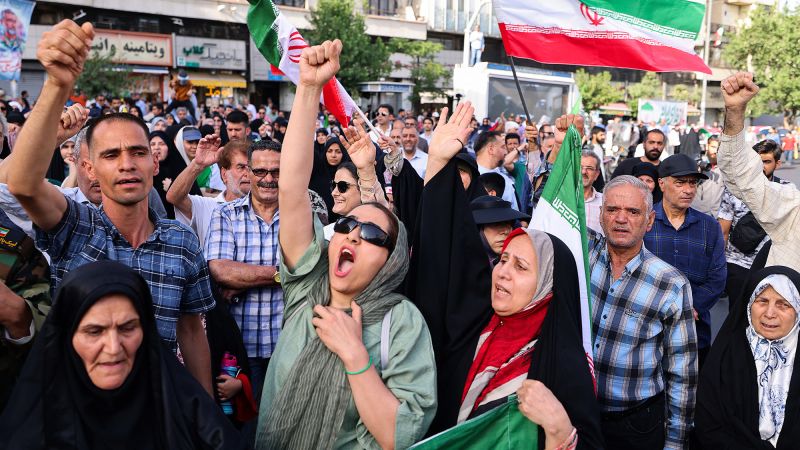
All eyes are on how Tehran will react to the US attack on three key Iranian nuclear facilities early Sunday local time, which thrust America into the Israel-Iran conflict that is entering its 11th day.
Early assessments raise questions over whether the US destroyed the bulk of the country’s enriched nuclear material while President Donald Trump alluded to the possibility of regime change in Iran.
Here’s what you need to know:
How will Iran respond?: Iran’s Foreign Minister Abbas Araghchi said his country has “a variety of options” when deciding how to respond to the US attacks. Tehran denounced the US and Israel at an emergency UN Security Council meeting and voiced skepticism about the potential for diplomacy. From striking US bases in the region, to possibly closing a key waterway – the Strait of Hormuz — to global shipping, Iran is likely mulling its next moves.
Calls for regime change: Trump floated the idea of possible of regime change in Iran in a social media post Sunday evening. “If the current Iranian Regime is unable to MAKE IRAN GREAT AGAIN, why wouldn’t there be a Regime change??? MIGA!!!” Trump wrote. The president’s post is a pivot from messaging by senior administration officials, though Trump did not specifically say the US would enact regime change.
Allied support: A number of close US allies have expressed support for America’s strikes against Iran, arguing that Iran had presented a nuclear threat, but urging diplomacy and de-escalation. Others, including key partners in the Gulf, have expressed concern and dismay over the strikes. Australian Prime Minister Anthony Albanese, for example, said Monday that Iran “cannot be allowed to get a nuclear weapon.”
Domestic criticism: Some lawmakers, including from usually highly opposed ends of the US political spectrum, have criticized Trump’s decision to bomb Iranian nuclear facilities, and the move has highlighted a divide within Trump’s MAGA movement. Republican Rep. Marjorie Taylor Greene, a staunch Trump ally, said “This is not our fight” while Independent Sen. Bernie Sanders said, “we cannot let history repeat itself.”
A misdirect: While the final call came Saturday as bombers were already in the air, those around Trump believed his mind had been largely made up for days regarding taking action in Iran. Trump directed staff to announce 2-week window – thinking the timeline could throw off the Iranians and conceal his plans, according to several sources familiar with what happened.
“Operation Midnight Hammer”: B-2 stealth bombers dropped more than a dozen massive “bunker-buster” bombs on Iran’s Fordow and Natanz facilities, while Tomahawk missiles struck Isfahan, according to a US timeline of the attack. The strikes thrust the US into the Israel-Iran conflict, which has seen the two sides trade attacks for over a week. Top administration officials insist the US is not at war with Iran, but Trump has warned the US could launch more attacks if Tehran does not make peace.
Strikes continue: Israel launched fresh airstrikes targeting military infrastructure in western Iran’s Kermanshah city, the Israeli military said Monday morning. Earlier, Iranian state affiliated media said Israel struck Parchin, a large military complex southeast of Tehran. Iran launched its own strike on Israel on Monday, firing a missile that was intercepted by Israel’s air defenses.

